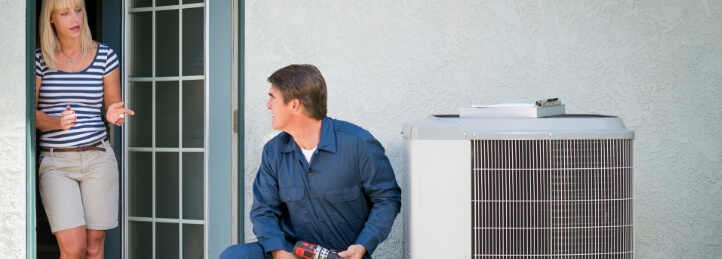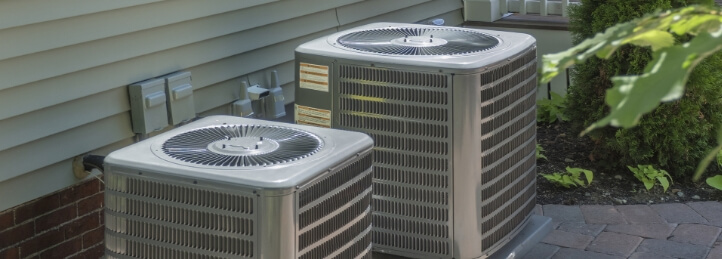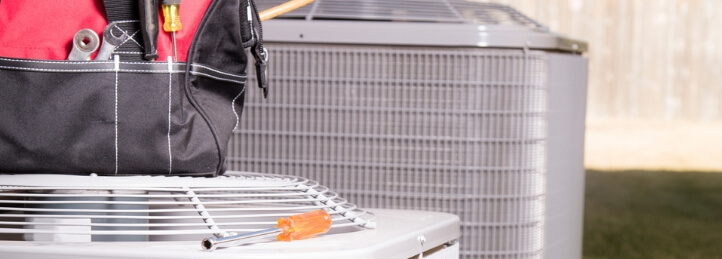HVAC Services

When it comes to keeping your home or business comfortable year-round, Snellville Heating, Air and Plumbing’s HVAC services are designed to exceed your expectations. We are proud to deliver reliable, high-quality solutions tailored to your heating, ventilation, and air conditioning needs. Why choose us?
- Offering 24/7 Emergency Services
- NATE-Certified Technicians
- A Focus on Integrity and Accountability
With years of experience and a commitment to excellence, we ensure your system operates efficiently and effectively, no matter the season. Trust our team to prioritize your comfort and satisfaction every step of the way.
Schedule an appointment with Snellville Heating, Air and Plumbing today. Your Comfort is Our Business!
What Does HVAC Stand For?
HVAC stands for Heating, Ventilation, and Air Conditioning, which represents the essential systems and processes that regulate the temperature, airflow, and overall air quality within a home or commercial building. These systems are critical for creating comfortable and healthy indoor environments, regardless of the weather outside. Whether you’re looking to stay cool during summer, warm in the winter, or ensure that the air you breathe is clean and safe, HVAC systems play a vital role in maintaining a balanced indoor climate.
Breaking Down HVAC
- Heating. Heating systems are designed to keep your home or business warm during colder months. Common heating solutions include furnaces, heat pumps, and boilers, which use energy sources such as natural gas, electricity, or oil. These systems work by generating and distributing heat throughout your space, ensuring consistent and reliable warmth even in the chilliest weather.
- Ventilation. Ventilation focuses on maintaining proper airflow and removing stale air, moisture, and contaminants from your indoor environment. A well-functioning ventilation system ensures that fresh air circulates while pollutants, odors, and excessive humidity are expelled. Proper ventilation is not only essential for comfort but also for promoting good health by reducing allergens and airborne pathogens.
- Air Conditioning. Air conditioning systems are designed to provide cool, refreshing air during hot and humid weather. They work by removing heat and humidity from the indoor air and replacing it with cooled air. From central air conditioning systems to ductless mini-splits, modern cooling solutions are both energy-efficient and highly effective, keeping your space comfortable no matter how high the temperatures rise.
Why Is HVAC Important?
HVAC systems are about more than just comfort—they directly impact your health, safety, and energy efficiency. Here’s why they matter:
- Indoor Air Quality: Proper HVAC systems help remove allergens, dust, and pollutants, ensuring you breathe cleaner air. This is especially important for individuals with allergies, asthma, or other respiratory conditions.
- Energy Efficiency: Modern HVAC systems are designed to minimize energy consumption, helping you save money on utility bills while reducing your environmental footprint.
- Consistent Comfort: A well-maintained HVAC system ensures that your indoor environment remains comfortable and consistent year-round, no matter the season.
Trust Our Expertise
At Snellville Heating, Air and Plumbing, we specialize in providing top-notch HVAC services to meet all your heating, cooling, and indoor air quality needs. Our team of certified technicians is committed to delivering reliable, energy-efficient solutions tailored to your unique requirements. Whether you need a system upgrade, routine maintenance, or emergency repairs, we’re here to ensure your home or business stays comfortable and safe year-round.
For HVAC services you can trust, contact us today to experience the difference. We’re dedicated to providing solutions that improve your quality of life and keep your systems running smoothly for years to come!

Common Types of HVAC Systems
Understanding the different types of HVAC systems available can help you make an informed decision to meet your heating, cooling, and indoor air quality needs. Each type of system offers unique benefits, and selecting the right one depends on your space, climate, and energy efficiency goals. Here’s a closer look at some of the most common HVAC systems, including furnaces, central air conditioners, ductless mini-splits, centralized heat pumps, and air purifiers or filters.
Furnaces
Furnaces are a cornerstone of heating systems in many homes. They work by heating air through combustion or electric resistance and then distributing it via ductwork throughout your home. There are several types of furnaces, including:
- Gas Furnaces: Efficient and cost-effective for areas with natural gas availability.
- Electric Furnaces: A great option for homes without access to natural gas.
- Oil Furnaces: Often used in rural areas where other fuels are less accessible.
Furnaces are known for their reliability and ability to provide consistent heat during the coldest months. Regular maintenance ensures they operate efficiently and last for many years.
Central Air Conditioners
Central air conditioning systems are the most common solution for cooling homes and businesses. These systems consist of:
- An Outdoor Unit: Houses the condenser and compressor.
- An Indoor Unit: Contains the evaporator coil and air handler.
Central air conditioners use a network of ducts to distribute cool air throughout your space. They are efficient and effective, providing consistent cooling during hot and humid weather. Paired with a programmable thermostat, central air systems can optimize comfort and energy savings.
Ductless Mini-Splits
Ductless mini-split systems are an excellent option for homes or spaces without existing ductwork. These systems consist of an outdoor unit and one or more indoor air handlers, which can be installed in individual rooms. Benefits of ductless systems include:
- Zoned Comfort: Adjust temperatures independently in different areas.
- Energy Efficiency: Avoids energy loss common with ducted systems.
- Easy Installation: Requires minimal construction compared to adding ductwork.
Ductless mini-splits are ideal for older homes, additions, or spaces like garages and basements.
Centralized Heat Pumps
Heat pumps are versatile systems that provide both heating and cooling. They work by transferring heat rather than generating it, making them highly energy-efficient. Centralized heat pumps use ductwork to distribute air and are ideal for milder climates. For colder areas, hybrid systems that pair heat pumps with furnaces offer year-round comfort and efficiency.
Air Purifiers and Filters
Indoor air quality is a critical aspect of HVAC systems, and air purifiers or advanced filtration systems can help improve it. These systems work to remove allergens, dust, mold, bacteria, and other contaminants from the air. Options include:
- HEPA Filters: Trap 99.97% of particles as small as 0.3 microns.
- UV Air Purifiers: Kill bacteria and viruses using ultraviolet light.
- Carbon Filters: Eliminate odors and chemical pollutants.
Adding air purifiers or upgraded filters to your HVAC system enhances the health and comfort of your indoor environment, especially for those with allergies or respiratory concerns.

How to Choose the Right HVAC System for Your Needs
Choosing the right HVAC system for your home or business is essential to ensure year-round comfort, energy efficiency, and air quality. With many options available, selecting the best system depends on factors such as your space, climate, and budget. Here are key considerations to help you make the right choice:
Assess Your Heating and Cooling Needs
Start by evaluating your space and climate. For colder climates, a furnace or heat pump may be ideal for heating, while central air conditioning or ductless mini-splits work well in warmer regions. If you experience both extremes, a hybrid system combining a heat pump and furnace may be the best solution.
Consider Energy Efficiency
Look for systems with high energy efficiency ratings, such as SEER2 (Seasonal Energy Efficiency Ratio 2) for cooling and AFUE (Annual Fuel Utilization Efficiency) for heating. Energy-efficient systems can save money on utility bills while reducing your environmental impact.
Think About Indoor Air Quality
If air quality is a concern, consider HVAC systems with advanced filtration or air purification options. HEPA filters, UV air purifiers, and dehumidifiers can help reduce allergens, pollutants, and moisture for a healthier indoor environment.
Evaluate Your Budget
Upfront cost is important, but don’t overlook long-term savings from energy-efficient systems and reduced maintenance costs. Financing options or rebates may be available to make a higher-efficiency system more affordable.
Work with a Trusted HVAC Professional
At Snellville Heating, Air and Plumbing, we guide you through every step of the process, from assessing your needs to selecting and installing the perfect HVAC system. Contact us today for expert advice and reliable solutions tailored to your comfort and budget.
Signs Your HVAC System Needs Repair or Replacement
Your HVAC system plays a vital role in keeping your home comfortable and maintaining healthy indoor air quality. However, like any mechanical system, it may show signs of wear or failure over time. Recognizing these signs early can help you decide whether your system needs repair or replacement.
- Inconsistent Heating or Cooling. If certain rooms are too hot or too cold, or your system struggles to maintain a consistent temperature, it may indicate issues with airflow, ductwork, or system components.
- Strange Noises or Odors. Unusual sounds like banging, rattling, or squealing often signal mechanical problems, while musty or burning odors can indicate mold, electrical issues, or other concerns.
- Increased Energy Bills. A sudden spike in energy costs might mean your system is working harder than it should due to inefficiency or malfunctioning parts. Older systems may struggle to keep up with modern energy standards.
- Frequent Repairs. If you find yourself calling for repairs frequently, it might be more cost-effective to invest in a new system rather than continuing to fix an aging, inefficient one.
- Poor Air Quality. Excessive dust, humidity issues, or an increase in allergy symptoms could indicate that your HVAC system isn’t properly filtering or circulating air.
- Age of the System. Most HVAC systems last 10-15 years. If your system is nearing or past this range, it may be time to consider replacement, especially if repairs are becoming more frequent or costly.
The Benefits of Regular HVAC Maintenance
Regular HVAC maintenance is essential for ensuring the efficiency, reliability, and longevity of your heating, cooling, and indoor air quality systems. A well-maintained system not only keeps your home comfortable but also saves you money and enhances your overall quality of life. Here are the key benefits of routine HVAC maintenance:
Improved Energy Efficiency
Over time, dirt, dust, and wear can reduce the efficiency of your HVAC system, causing it to work harder and use more energy. Regular maintenance, such as cleaning filters, coils, and ducts, ensures your system runs at peak performance, lowering energy bills.
Extended System Lifespan
HVAC systems are a significant investment, and routine maintenance helps protect that investment. By addressing minor issues before they become major problems, you can extend the life of your system and avoid premature replacement.
Reduced Repairs and Breakdowns
Unexpected breakdowns are not only inconvenient but can also be costly. Scheduled maintenance allows technicians to identify and fix small issues before they escalate, reducing the likelihood of emergency repairs.
Enhanced Indoor Air Quality
Dirty filters and neglected systems can circulate allergens, dust, and pollutants throughout your home. Maintenance includes cleaning and replacing filters, ensuring your indoor air remains fresh and healthy.
Consistent Comfort
Well-maintained systems are better at maintaining consistent temperatures and humidity levels, keeping your home comfortable year-round.
Peace of Mind
Knowing your HVAC system is running smoothly provides peace of mind, especially during extreme weather conditions.
Energy-Efficient HVAC Solutions for Your Home
Improving energy efficiency in your home is one of the best ways to lower utility bills, reduce your environmental footprint, and maintain a comfortable indoor environment. Your HVAC system plays a crucial role in your home’s energy use, often accounting for a significant portion of your monthly energy costs. With the right strategies and equipment, you can make your home more energy-efficient and save money.
Upgrade to Energy-Efficient Equipment
Modern HVAC systems are designed with energy efficiency in mind. Look for systems with high SEER2 (Seasonal Energy Efficiency Ratio 2) ratings for air conditioning and heat pumps, and high AFUE (Annual Fuel Utilization Efficiency) ratings for furnaces. Energy-efficient systems use less power while delivering optimal comfort.
Maintain Your HVAC System
Regular maintenance is essential for energy efficiency. Dirty filters, clogged ducts, and worn components force your system to work harder, consuming more energy. Routine inspections and tune-ups keep your system running at peak performance.
Optimize Thermostat Use
A programmable or smart thermostat can significantly improve efficiency by automatically adjusting temperatures based on your schedule. Lowering the thermostat a few degrees in winter or raising it slightly in summer can result in substantial energy savings.
Seal and Insulate
Air leaks in ductwork, windows, and doors can waste energy. Properly sealing and insulating your home prevents conditioned air from escaping, reducing the workload on your HVAC system.
At Snellville Heating, Air and Plumbing, we’re committed to helping you create an energy-efficient home. Contact us today to learn more about energy-saving HVAC solutions tailored to your needs!
